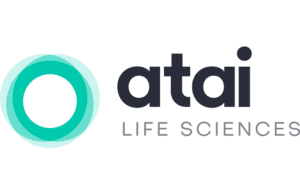 Atai Life Sciences (Nasdaq:ATAI) has dosed the first patient in a Phase 1 single-ascending-dose study focused on VLS-01, a synthetic form of N,N-dimethyltryptamine (DMT) for treatment-resistant depression (TRD).
Atai Life Sciences (Nasdaq:ATAI) has dosed the first patient in a Phase 1 single-ascending-dose study focused on VLS-01, a synthetic form of N,N-dimethyltryptamine (DMT) for treatment-resistant depression (TRD).
While many companies in the psychedelic industry first focused on psilocybin, a growing number of players are beginning to explore the therapeutic potential of DMT, a short-acting naturally-occurring psychedelic.
The active component of the South American psychedelic brew ayahuasca, DMT, is a 5-HT2A receptor agonist like psilocybin and LSD.
Unlike other classic psychedelics, DMT is not orally active when administered alone. Ayahuasca contains a monoamine oxidase inhibitor to protect DMT from metabolism.
The clinical-stage company Algernon Pharmaceuticals (CSE:AGN; Frankfurt:AGW0; OTCQB: AGNPF), for instance, has commenced a Phase 1 study of IV DMT in patients ischemic stroke patients.
Although treatment-resistant depression lacks a universal definition, the condition is a significant problem.
A Journal of Clinical Psychiatry study reported that the 12-month U.S. prevalence of medication-treated major depressive disorder was 8.9 million adults. Of those, 2.8 million (30.9%) had treatment-resistant depression.
Atai Life Science estimates that 100 million people have TRD internationally, comprising roughly one-third of people with depression.
Atai Life Science’s Phase 1 study will compare the bioavailability of buccal versus IV formulations of DMT. In addition, the study will use quantitative electroencephalography (qEEG) and other techniques to study the pharmacodynamics of DMT.
The company anticipates that buccal VLS-01 will provide a psychedelic experience with a duration of 30 to 45 minutes.
That is considerably shorter than psilocybin, which has a duration of action of roughly four to six hours or LSD, which can induce a 10–12 hour psychedelic experience.
Atai’s study will involve the use of its IDEA-1 digital therapeutic app. The app was designed as an adjunct to the treatment of mood disorders.
The company anticipates topline results from the Phase 1 study in the first half of 2023.
ATAI shares fell 6.07% to $3.25 in mid-day trading.